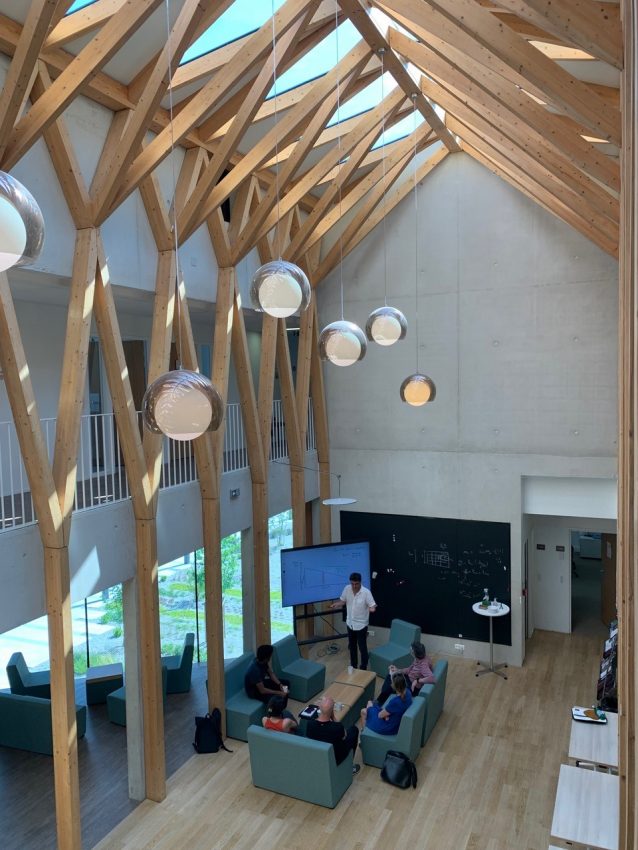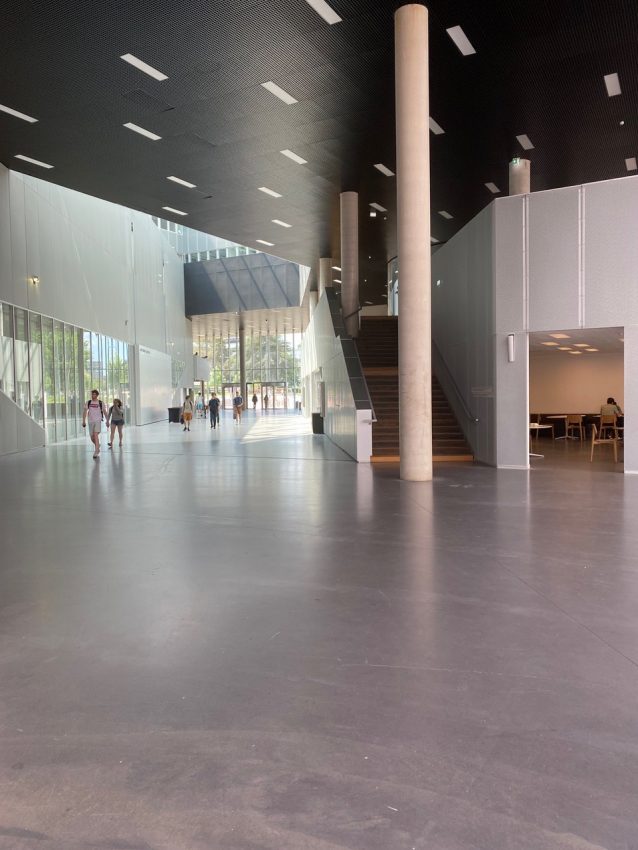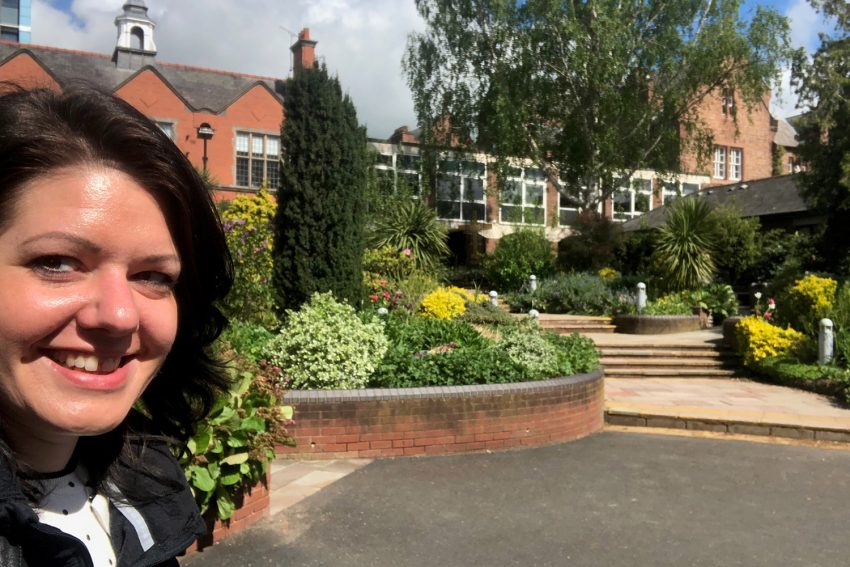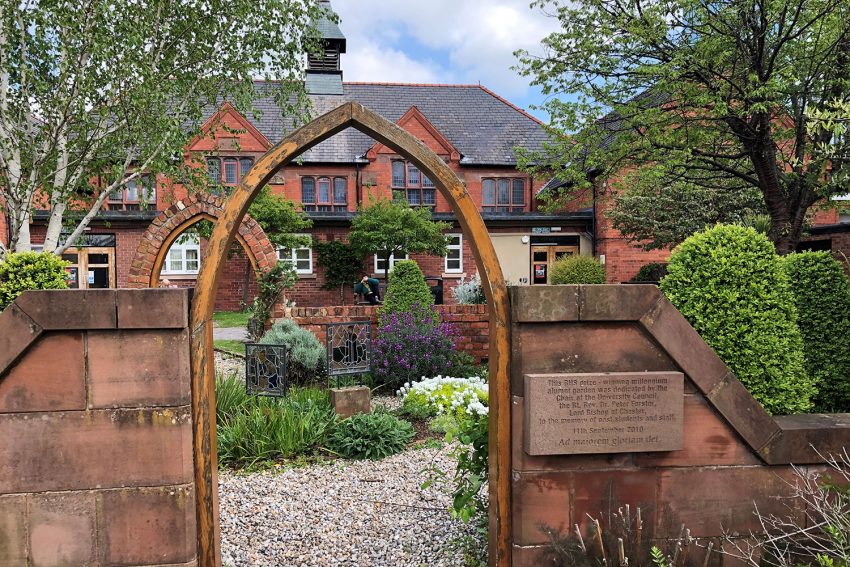Teach, work and do research abroad Apply now for the Erasmus+ staff mobility programme
In June, the European Education Programme Erasmus+ celebrated its 35th anniversary. At TU Braunschweig, Erasmus+ is one of the most popular programmes for students to go abroad for one or two semesters and gain new experience in a foreign country. But Erasmus+ not only promotes student exchange: staff mobility has also been supported by the programme for a long time. Just like students, teaching staff, researchers and employees of institutions of higher education have the opportunity to gain experience abroad and thus benefit from new perspectives for their everyday work.

The “cathedral” at the Institut Pascale – a place for joint creative work. Picture
Credit: Vanessa Carlow/TU Braunschweig
Professor Vanessa Miriam Carlow, Head of the Institute for Sustainable Urbanism at TU Braunschweig, travelled to Paris in May 2022 and spent one week at Institute Pascale, a prestigious centre with national funding that brings together researchers from all over the world. Already as a student, Carlow stayed abroad at TU Delft thanks to Erasmus+. Due to her interest in international and intercultural topics, she is in constant exchange with the International House and the European Office of TU Braunschweig: “This is where we get very good and precise advice on our various projects, such as research, exchange, joint teaching or excursions. And once again, Francesco Ducatelli and his colleagues have recommended exactly the right funding for our purpose”, Carlow compliments.
Her stay in Paris was important for the professor of architecture from both a personal and a professional point of view. She was able to put her knowledge of French into practice and at the same time develop new research approaches for mobility in cities, one of her central research topics. Carlow explains: “The interdisciplinary workshop was specifically about how we can improve the conditions for pedestrians and cyclists in combination with public transport. In a densely-populated metropolis like Paris, we could see first-hand what role mobility plays in people’s everyday lives.”
Funds successfully raised for core research area

Lab City CentraleSupélec of the Office for Metropolitan Architecture – exciting architecture on the campus in Paris. Picture
Credit: ISU
Following the workshop with scientists from different disciplines from all over the world, Carlow and other participants successfully raised seed funding for one of TU Braunschweig’s core research areas, Future City. This funding will be used to apply for a joint project with the German Research Foundation (DFG) or the EU. However, this was not the only reason why she considered the stay in Paris a complete success: “I was very impressed with the Institute Pascale! Not only do I like the concept of bringing together researchers from all over the world to work on one topic for a week; it’s also a very beautiful building with wonderful rooms and a rooftop terrace that really fuels creative work. I would like to see something like that in Germany.” For Carlow, an added bonus was that thanks to the Gerhard and Karin Matthäi Foundation she could take her four-year-old son with her on her business trip.
Francesco Ducatelli, Erasmus+ Institutional Coordinator at TU Braunschweig sees the many advantages staff mobility provides: “Staying abroad contributes to international networking, strengthens personal competences such as foreign language skills and can boost professional activities. Regardless of whether someone works in teaching, research or administration, I believe that such an experience is very valuable.”
Leave your own comfort zone

Mona Seydel spent a week at the University of Chester in the UK in 2019. Picture
Credit: Mona Seydel/TU Braunschweig
Mona Seydel, who was then Programme Coordinator for the Teacher Training Course GHR 300, travelled to Chester in the United Kingdom in 2019—just before the Coronavirus pandemic. During a self-organised stay there, she visited colleagues who are also involved in the training of teachers. Seydel explains: “I wanted to practise my English skills again and expand my foreign language vocabulary, because not all of the technical terms that I use on the job in German have come naturally to me in English. In addition, it is important to me to always think outside the box and leave my own comfort zone so as not to develop a blinkered attitude but to get exciting ideas for my own work.”
Before coming to the UK, she agreed with the University of Chester on which institutions and people she would visit and which issues to focus on. In addition to teacher training, Mona Seydel was also interested in application training for students and media formats—for all of which she was able to pick up new ideas in Chester. Seydel adds: “I was given a warm welcome, had many enriching conversations, learned a lot and was able to broaden my horizons during my stay. Everyone was extremely helpful and showed great interest in my questions. And I was also asked many questions about how certain processes differ between the UK and Germany, for example.” Back in Brunswick, she was able to put her new knowledge directly into practice. For example, in application training for students who want to apply for jobs in the UK.

There are many great picturesque corners to discover on the University of Chester campus.
Picture Credit: Mona Seydel/TU Braunschweig
Her recommendation for her colleagues at TU Braunschweig is therefore very clear: “I can only recommend taking this step and would go on the staff mobility programme again myself. This time, however, with a different focus, as I now have other tasks as Head of the Examinations Office of Faculty 6 and therefore also new questions. For me, one thing is certain: I will always enjoy gaining new experiences abroad and will certainly apply for the staff mobility programme again.”
Text: Henrike Hoy/International House
